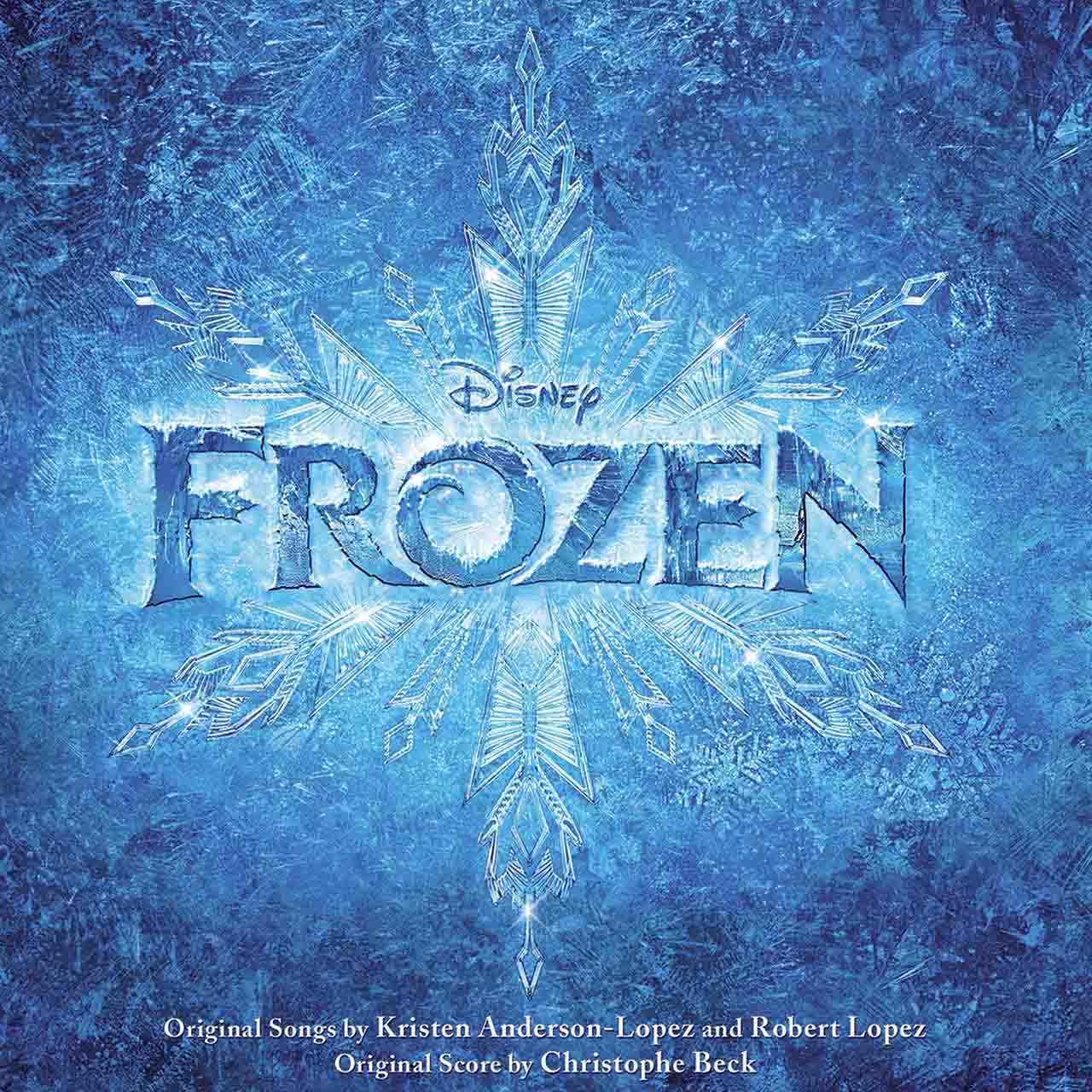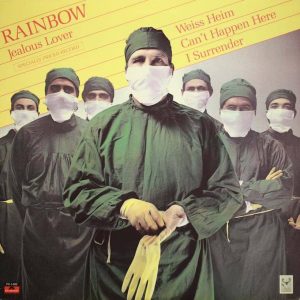As incredible as it sounds in retrospect, before the release of Frozen in late November 2013, Disney executives were so unsure of the market for an animated musical feature film that early trailers didn’t feature any of its songs. By mid-January 2014 though, the Frozen soundtrack was No. 1 in the Billboard charts, marking the first time that a soundtrack for an animated Disney feature film had hit the top spot since Pocahontas in 1995. The Frozen soundtrack – co-written by husband-and-wife songwriting team Kristen Anderson-Lopez and Robert Lopez – went on to become the biggest album globally in 2014, selling ten million copies.
For Robert Lopez, the decision to work on Frozen was an easy one, as he told the Los Angeles Times in 2015, “Whenever Disney asks if you want to do a fairy tale musical, you say yes.” The couple had plenty of experience, Anderson-Lopez was the co-creator of the hit musical In Transit, while Lopez had written co-created Broadway sensations Avenue Q and The Book Of Mormon. They also had worked with Disney previously, having collaborated on songs for 2011’s Winnie The Pooh feature film and for Finding Nemo – The Musical and The Seas With Nemo and Friends at Disney Parks.
Listen to the Frozen soundtrack on Spotify or Apple Music now.
The writing process
The songwriters were huge fans of Disney musicals, having come of age during the studio’s renaissance of the late 80s and early 90s, when Alan Menken and Howard Ashman’s songs were pivotal to the success of The Little Mermaid, Beauty and the Beast, and Aladdin. “I just wrote a thank you letter to Alan Menken telling him that he created the architecture and we’re just living in it,” Lopez told Playbill. “He and Howard really created this form and brought it to where it is now – all we did was try and write one of those.” Anderson-Lopez added, “The entire time we were working, we had the creed: ‘What would Ashman do?’”
Determined to live up to their illustrious predecessors, the couple threw themselves into the writing process. They spent 14 months working in close collaboration with the movie’s production team in Burbank, California, from New York, thanks to the wonders of technology. Lopez later explained to IndieWire, “The kind of songs we wanted to write for Frozen were the kind that, if they were removed from the movie, nothing would make sense at all. Each song needed to bear its storytelling weight, but as a result a lot of the songs ended up on the floor as the story changed over the year and a half that we worked on it. We live in Brooklyn, so through video conferences, we could be in the Story Room every day for two hours with the team, hashing out where those songs should go, what the story would be, what Anna wanted, who Elsa was, and things like that.”
The pair wrote roughly 25 songs for Frozen, of which eight made it into the final movie (seven of the remaining songs were later released on the deluxe edition soundtrack). One song in particular, the raucous ode to imperfection “Fixer-Upper,” demonstrates the lengths they’d go to for the right song – Anderson-Lopez told Variety that the version in the movie was the fourth try, “We wrote this whole song that ended with a list of terrible things that could happen to your feet, including plantar warts and athlete’s foot. [Former chief creative officer of Pixar] John Lasseter heard it and he was like, ‘What?! How did we get onto foot fungus?!’”
The songs of Frozen
“Let It Go” proved to be the key to the movie for the songwriters. Not only was it the movie’s signature tune, but it became crucial to the way that the pair approached writing the movie’s songs, as Lopez told Awards Daily, “We were able to take pieces of ‘Let It Go’ and use them throughout the score… We were able to use that as the modular building blocks of the piece… Specifically, in ‘For the First Time in Forever,’ we used that part where she’s referencing her former self, ‘Don’t let them in. Don’t let them see.’ She’s kind of quoting herself in that moment of ‘Let It Go.’”
“Do You Want To Build A Snowman?” is another vital track to the development of the story, tracking the relationship between Anna and Elsa as the characters come of age. As a child, Anna implores her sister to join her in childish games, but to no avail. As the song develops, the story of the death of their parents is revealed, after which Anna returns to her sister’s door to ask for company. Again, her efforts are in vain. The loneliness of the two characters is palpable.
“Love Is An Open Door” is another song that has to do a lot of heavy lifting, plot-wise. It’s an effervescent duet between Ann and Prince Hans of the Southern Isles, a character later revealed as the true villain of the movie. Anderson-Lopez later explained the thinking behind the song, “You had to understand why Anna would just rush into the arms of someone she’d just met. We had to take the audience on ‘the most fun first date.’ We used to call it the ‘Golf ‘n Stuff.’ It’s a reference from The Karate Kid – the scene where Ralph Macchio takes Elizabeth Shue to Golf ‘n Stuff and they play Skee Ball and end up singing karaoke and it seemed like they were made for each other. That was fun for us.”
Meanwhile, “In Summer” offered some darkly comical relief to proceedings as Olaf the snowman sings of his burning desire to experience summer. Olaf sings of summer breezes, tans, and sipping a cold drink in the sun, all the while unaware that he’d be a puddle in no time should his fantasies come true.
After the runaway commercial success of Frozen came awards galore – “Let It Go” won the Academy Award for Best Song and a Grammy for Best Song Written For Visual Media – but most importantly, their songs had been an intrinsic part of one of the most beloved films in a generation. For Anderson-Lopez, however, the most important thing was staying true to their original vision, as she told Playbill, “Everything that we wrote in this movie was written from a place of, ‘What can we write to help make this world a better place for our daughters?,’” Anderson-Lopez said. “Every lyric and every choice that we had the characters make [was written with that in mind]. Whenever anything was suggested that felt wrong, as a parent of two daughters, we’d say no.”
Listen to the Frozen soundtrack on Spotify or Apple Music now.




